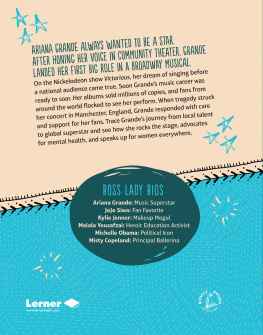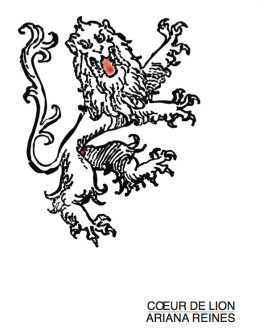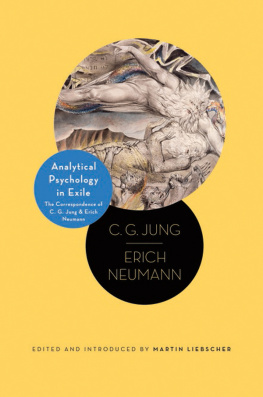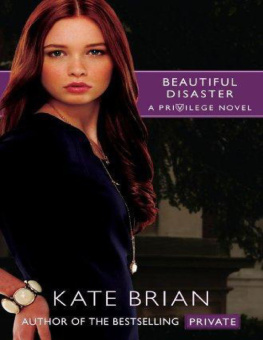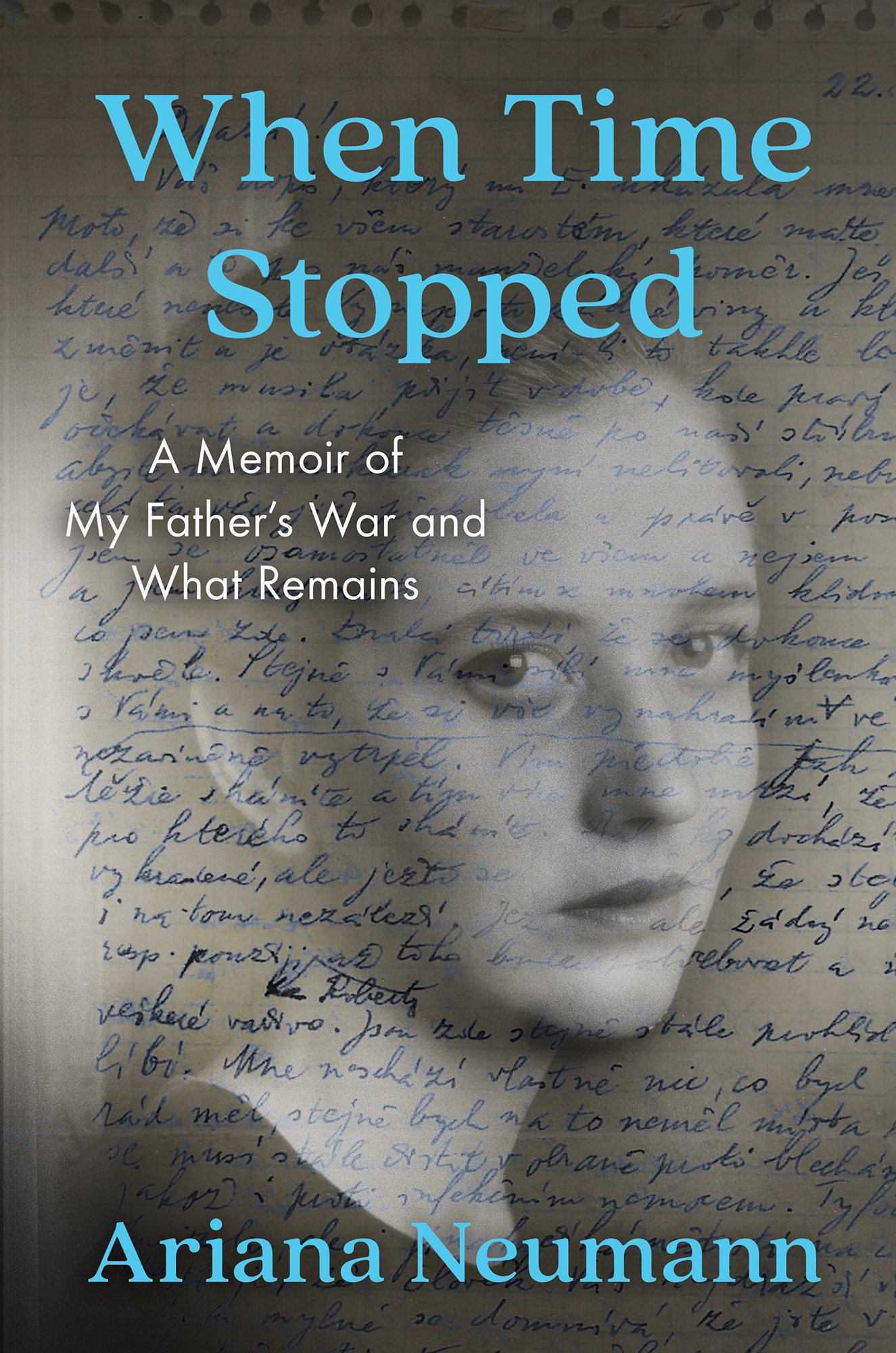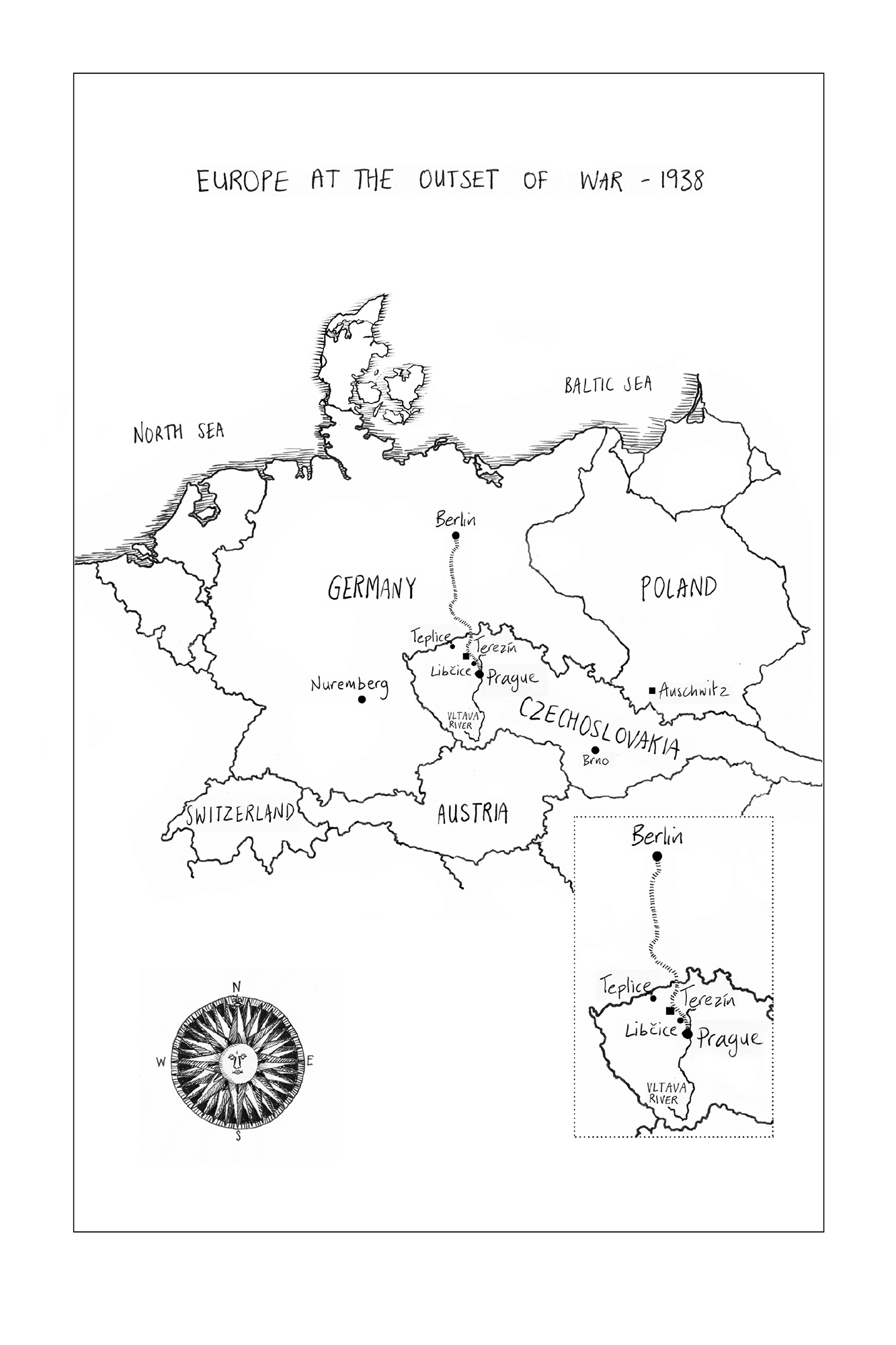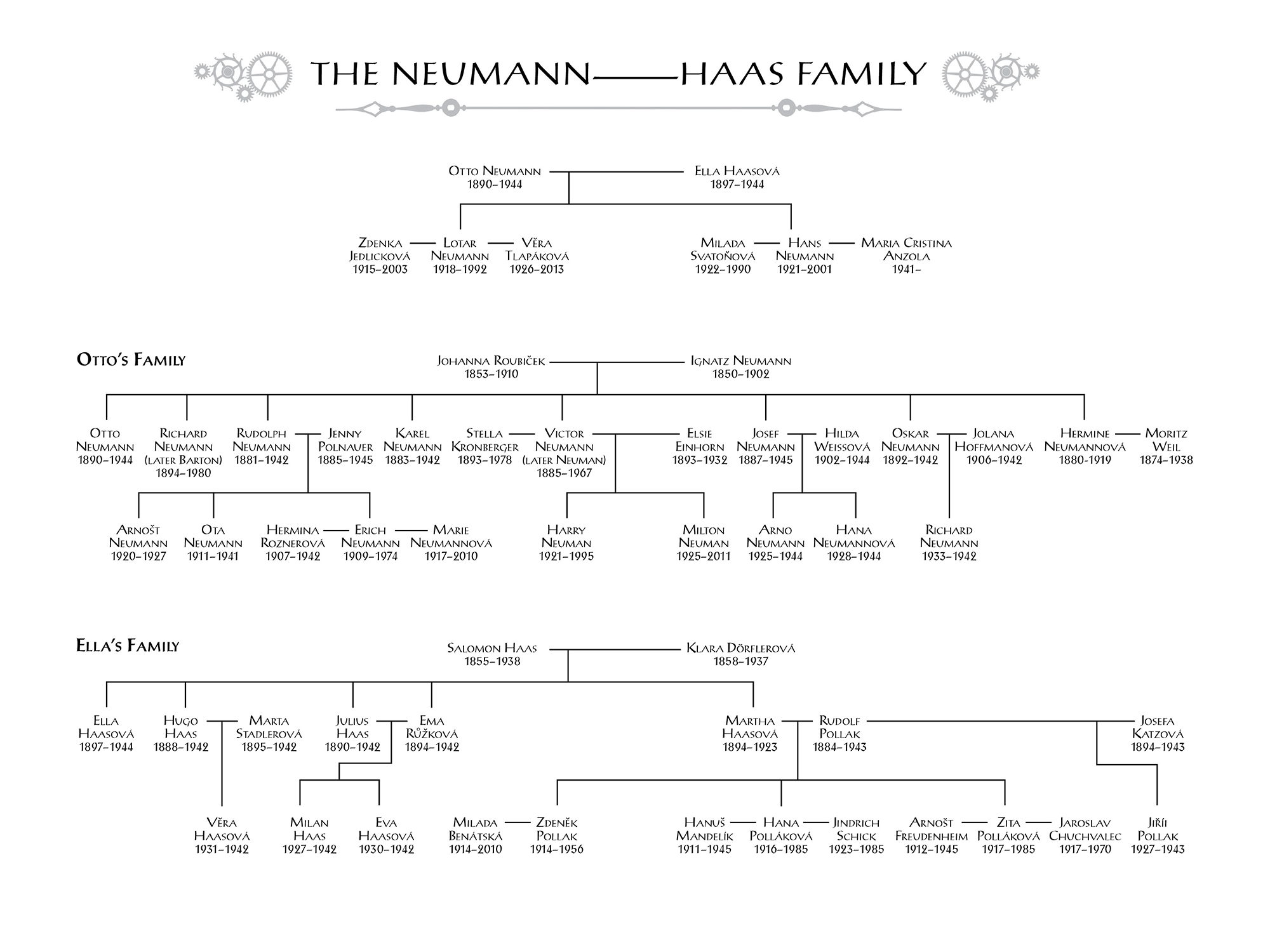Contents
Guide
MORE PRAISE FOR
WHEN TIME STOPPED
An astonishing family memoir that will imprint itself on your psyche Ariana Neumann has breached the hidden surface of her familys tumultuous past and brought not only their tragedies and sorrows but also their joys and loves to indelible light.
JOHN BURNHAM SCHWARTZ , author of The Red Daughter, The Commoner, and Reservation Road
A love letter to a father who, out of sheer will and determination, did not allow the Nazis to destroy himand who rose to become one of Venezuelas most successful industrialists. Part literary memoir, part mystery tale, Ariana Neumanns tribute to her father is a classic story of redemption and love.
JANINE DI GIOVANNI , author of The Morning They Came for Us: Dispatches from Syria
A fascinating and beautifully constructed memoir, and more than that, a testimonial to the power of meticulous research and family love.
CAROLINE MOOREHEAD , author of A Train in Winter and Village of Secrets
Remarkable Through painstaking, meticulous research Neumann tells the true storypart memoir, part historyof her heart-wrenching and ultimately life-affirming journey in uncovering her familys long hidden past.
GEORGIA HUNTER , author of We Were the Lucky Ones
Beautifully written One of the most powerful and profoundly moving family stories of the Holocaust to have been published in many years and a must-read.
DAN STONE , director of the Holocaust Research Institute, Royal Holloway, University of London
Ariana Neumann has given us a gripping true storythe account of her fathers determination to survive the Holocaust and the clues he left behind. This is nonfiction that reads like a detective thriller.
TILAR J. MAZZEO , author of Irenas Children
When Time Stopped is more than just history. Its a warning.
MICHAEL PALIN

Scribner
An Imprint of Simon & Schuster, Inc.
1230 Avenue of the Americas
www.SimonandSchuster.com
Copyright 2020 by Ariana Neumann
All rights reserved, including the right to reproduce this book or portions thereof in any form whatsoever. For information, address Scribner Subsidiary Rights Department, 1230 Avenue of the Americas, New York, NY 10020.
First Scribner hardcover edition February 2020
SCRIBNER and design are registered trademarks of The Gale Group, Inc., used under license by Simon & Schuster, Inc., the publisher of this work.
For information about special discounts for bulk purchases, please contact Simon & Schuster Special Sales at 1-866-506-1949 or .
The Simon & Schuster Speakers Bureau can bring authors to your live event. For more information or to book an event, contact the Simon & Schuster Speakers Bureau at 1-866-248-3049 or visit our website at www.simonspeakers.com.
Interior design by Erich Hobbing
Jacket photographs of the author at nineteen, her grandfathers letter, and her fathers watch all courtesy of the author
Library of Congress Control Number: 2019045041
ISBN 978-1-9821-0637-9
ISBN 978-1-9821-0639-3 (ebook)
Pablo Neruda, Si cada da cae, from El Mar y Las Campanas 1973 Pablo Neruda and Fundacin Pablo Neruda.
Pablo Neruda, If each day falls, translated by William ODaly, from The Sea and the Bells. Copyright 1973 by Pablo Neruda and the Heirs of Pablo Neruda. Translation copyright 1988, 2002 by William ODaly. Reprinted with the permission of The Permissions Company, LLC on behalf of Copper Canyon Press, www.coppercanyonpress.org.
Dylan Thomas, Do Not Go Gentle Into That Good Night from The Poems of Dylan Thomas, copyright 1952 by Dylan Thomas. Reprinted by permission of New Directions Publishing Corp.
Photo Credits: courtesy of the National Archives, Praha
For Sebastian
For Eloise
For Mara-Teresa
This book is dedicated to the memory of those who could not tell their stories.
Si cada da
cae dentro de cada noche,
hay un pozo donde la claridad
est encerrada.
Hay que sentarse a la orilla
del pozo de la sombra
y pescar luz cada,
con paciencia.
If each day falls inside each night,
There exists a well
where clarity
is imprisoned.
We need to sit on the rim
of the well of darkness
and fish for fallen light,
with patience.
Si cada da cae,
EL MAR Y LAS CAMPANAS, 1973
If each day falls,
THE SEA AND THE BELLS
Things are not as easy to understand or express as we are mostly led to believe; most of what happens cannot be put into words and takes place in a realm which no word has ever entered.
Rainer Maria Rilke,
Letters to a Young Poet, 1903
Prologue
1.
There is a question mark, almost lost in a sea of names on the walls of an old synagogue in Prague. Visitors hush children as they pass through each chamber of the Pinkas memorial. It is hard not to be overwhelmed by the dizzying display of black and red letters. They memorialize 77,297 individuals. Each was a resident of the Czech districts of Bohemia and Moravia during the war. All were victims of the Nazis.
Next to every name is stenciled the date of birth, and next to each date of birth neatly sits the date of death.
One entry bears the name of my father, Hanus Stanislav Neumann, born on February 9, 1921. It is different. Unlike the others on that wall, it has no date of death.
Instead, carefully calligraphed, there is an incongruous and bold black question mark.
I visited the memorial in 1997 as a tourist, unaware of any link with the synagogue. Scanning across the top wall to my right as I descended the steps into the first chamber, I was astounded to see my fathers name. He was then very much alive, settled and working in Caracas. And yet the bold question mark was there, both jarring and oddly apposite.
This was the first time I had seen the query inked on the wall, but questions about my father had emerged long before. My quest for answers started when I was just a little girl, living across an ocean and a sea in a very different world.

My fathers name with the question mark, tenth line from the top, in the Pinkas Synagogue, Prague
The questions began with a photograph. They started with a picture that was kept hidden but was then found. A memento left behind by accident or on purpose, perhaps subconsciously, that engendered doubt. An image that was out of sorts with reality, as I saw it, forcing the present into an unfamiliar focus. It prompted questions. It demanded answers of the past.
My childhood memories hum with the songs of troupials, crickets, and frogs. My recollections are cradled by tranquil breezes; they sway to the rhythm of tall palm trees and are lit by the reds and oranges of bird-of-paradise. Yet in all their warmth, color, and chaos, they are punctuated by the crisp metal rotors, wheels, pivots, and mainsprings of mechanical watches, of beautifully intricate movements with complications. Among enormous sculptures, my mother recites verses from Rubn Daro and Andrs Eloy Blanco, and my father dances as he sings Yellow Submarine. In most of my early memories, there are people moving around the open rooms, terraces, and gardenspoliticians, diplomats, industrialists, writers, filmmakers, ballet dancersgesticulating, chatting, laughing, sitting, or standing, invariably surrounding my parents. There is the noise of success, the prattle of happiness, but in some of the memories, the hubbub fades and there is just enough silence to hear the watches tick, click, whir, and chime.



